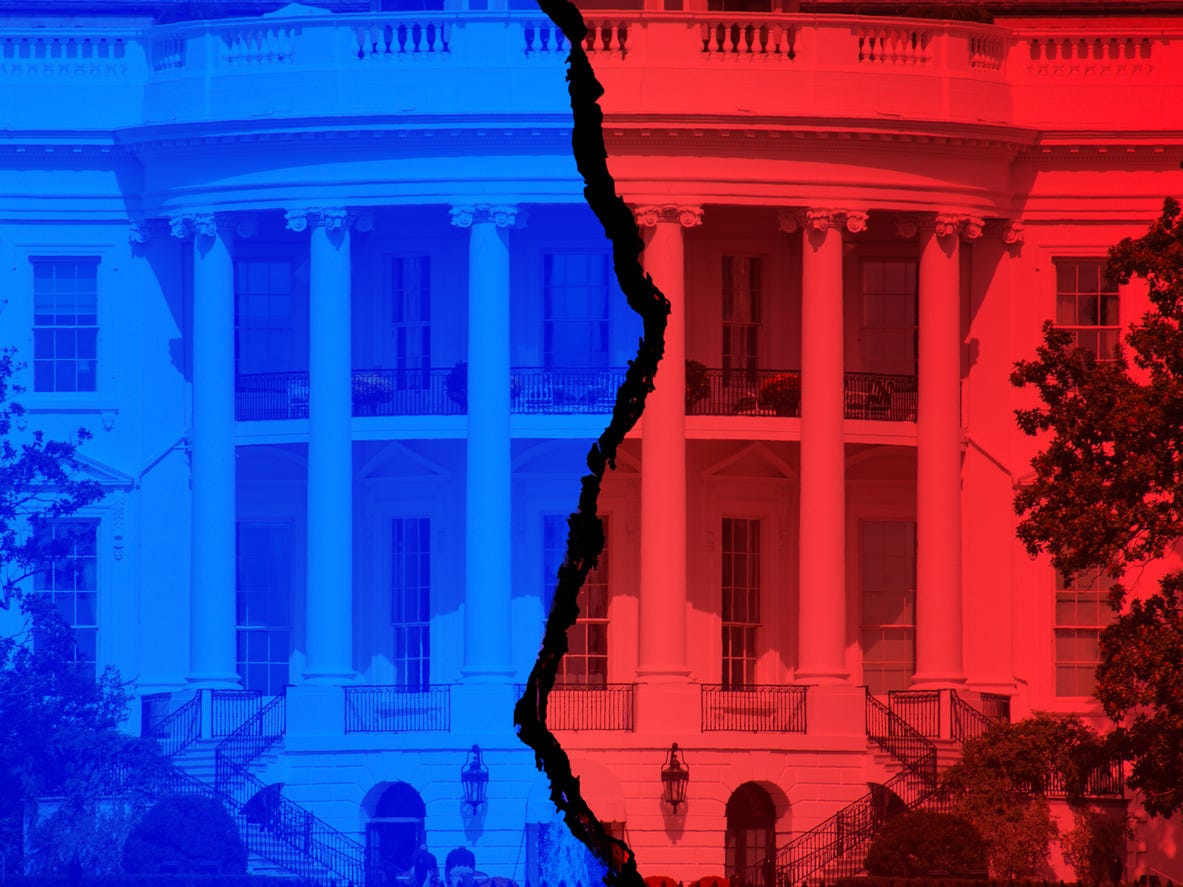
The gingham dog went “Bow-wow-wow!”
And the calico cat replied “Mee-ow!”
The air was littered, an hour or so,
With bits of gingham and calico
—“The Duel,” by Eugene Field
When I was a child, I recall listening to Field's poem. It was about a gingham dog and a calico cat who so detested each other that one night they “ate each other up”—leaving not a trace of either to be found the next morning. Years later I read the climactic scene in “The Final Problem,” in which the detective Sherlock Holmes and the evil Dr. Moriarty, embracing each other in mortal combat at the edge of Reichenbach Falls, both fall to their deaths. Still later I marveled at the teachings of the great dualist prophets, who preached that at the end of time lightness and darkness would simply annihilate each other.
Now once again, as I contemplate the next U.S. election, I’m in the mood to put on the robes of Mani and be brave. Is the end of world nigh? Are you looking forward to seeing Biden-Trump 2024, the Rematch?
If you're like most Americans, you’re not. In April, according to NBC News, 70% said that Biden should not run for re-election and 60% said Trump should not run either. Another poll in July put these shares at 59% and 61%, respectively.
![Most Americans don't want Biden to run in 2024, and a
majority say the same about Trump
Do you want [Joe Biden / Donald Trump] to run for president again in 2024? (% of registered voters)
Yes
Not sure No
Joe Biden
U.S. adult citizens
21
Democrats
Independents
15
Republicans
20
27
4
U.S. adult citizens
Democrats
Independents
Republicans
YouGoV
Donald Trump
25
17
21
59
32
14
19
31
The Economist/ youGOV July 2 - 5, 2022 Most Americans don't want Biden to run in 2024, and a
majority say the same about Trump
Do you want [Joe Biden / Donald Trump] to run for president again in 2024? (% of registered voters)
Yes
Not sure No
Joe Biden
U.S. adult citizens
21
Democrats
Independents
15
Republicans
20
27
4
U.S. adult citizens
Democrats
Independents
Republicans
YouGoV
Donald Trump
25
17
21
59
32
14
19
31
The Economist/ youGOV July 2 - 5, 2022](https://substackcdn.com/image/fetch/$s_!VEBH!,w_1456,c_limit,f_auto,q_auto:good,fl_progressive:steep/https%3A%2F%2Fsubstack-post-media.s3.amazonaws.com%2Fpublic%2Fimages%2Fa2aa6d8a-32c3-46ff-9cb5-6c789fff4392_790x524.png)
No one can recall two candidates who inspire such limited enthusiasm. In June, an astounding 36% of Americans viewed neither candidate favorably. Among registered voters who had an definite opinion, 21% viewed both candidates negatively—which, so far as we know, is a record. The runner-up may have been 2016, when 16% viewed both Trump and Clinton negatively. In 2020, the figure was only 5%. In 2012 (Obama v Romney), only 3%. And remember, these historical numbers were measured just before the election, after voters had been saturated with attack ads. So the recent 21% figure may climb a lot higher in the year to come.
We all know why voters are so negative. One candidate appears unfocused and infirm, the other self-obsessed to the point of derangement. One seldom appears in public lest he stumble while telling us what he believes. And the other will soon enter courtrooms swearing he really does believe things that judges, pollsters, state officials, and most of his own advisors repeatedly told him were untrue—something close to a plea of insanity.
Nonetheless, even while we avert our gaze, there appears to be no stopping the rematch scenario.



